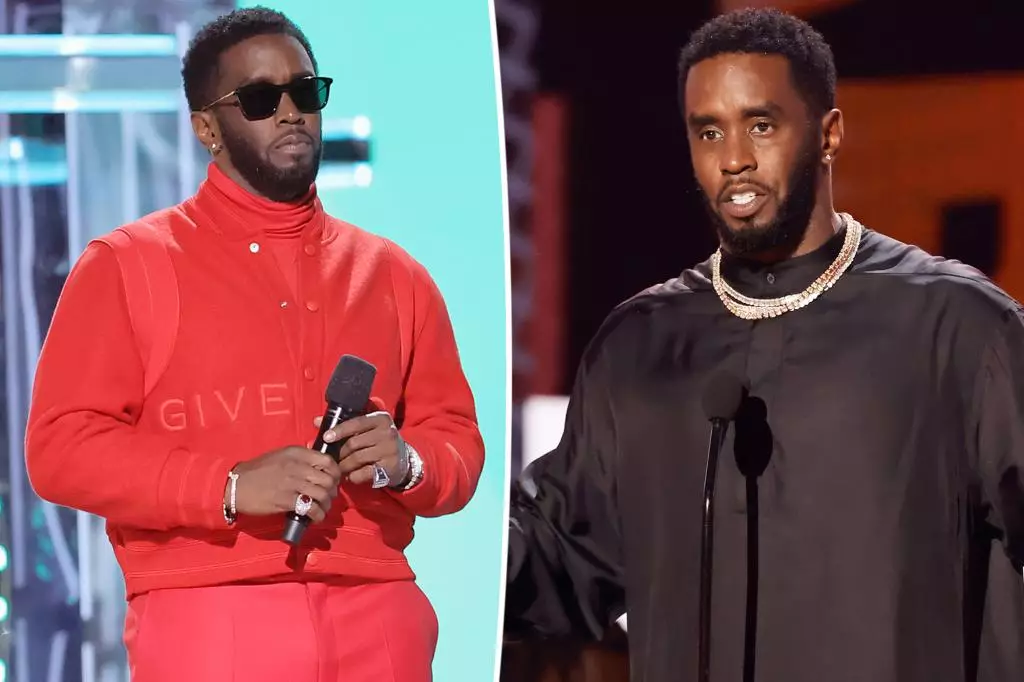Sean “Diddy” Combs, the renowned music mogul, is currently embroiled in a serious legal battle involving multiple allegations, including sex trafficking and racketeering. Public expectations are high as he prepares to take the stand in his trial, but legal experts caution that this move might not be in his best interest. Meesha Moulton, a prominent attorney based in Las Vegas, has raised significant concerns about the implications of Combs’ potential testimony. Her expertise sheds light on the challenges of navigating a court trial, especially for high-profile defendants like Combs, and her advice highlights the complexity of his situation.
Moulton emphasizes a fundamental principle in the legal world: defendants typically don’t testify in their trials. By choosing to take the stand, Combs risks exposing himself to the harsh scrutiny of cross-examination, where prosecution attorneys will relentlessly seek to find inconsistencies in his narrative. The consequences of a tense or confused demeanor during this intense process could severely undermine his case. She describes the emotional toll of cross-examination as “mentally grueling,” suggesting that any slip in composure could alter the jury’s perception of him.
Diddy’s eagerness to share his side of the story—a sentiment echoed by his attorney Marc Agnifilo—poses a dilemma. While it could humanize him and clarify his perspective, the perils of underperformance while on the stand are considerable. Moulton warns that if Combs shows signs of frustration, it may reinforce the prosecution’s narrative rather than challenge it. Additionally, she argues that he needs to prioritize a well-planned legal strategy over personal expressions of his narrative.
Combs’ desire to present himself as more than just the allegations against him—emphasizing his philanthropic efforts, for example—could be a double-edged sword. While presenting a multidimensional persona may create sympathy among jurors, Moulton warns that it requires significant preparation to ensure that these personal narratives don’t play into the hands of prosecutorial questioning.
A turning point in the case is the detailed indictment against Combs, which outlines serious allegations culminating in a 14-page document asserting that he created a “criminal enterprise.” The severity of the accusations—ranging from sexual coercion to obstruction of justice—paints a dark picture of a decades-long pattern of misconduct. Among other things, the indictment references “Freak Off” parties, during which alleged victims were exploited under deplorable circumstances, equipped with various vices designed to facilitate and hide illicit activities.
The revelations made in the indictment, such as the recovery of over 1,000 bottles of baby oil and lubricant from his properties, illustrate the gravity of the charges against Combs. This drastic evidence introduces a significant risk factor: should new evidence emerge during the trial, especially during his own testimony, it could lead to unexpected complications. Combs must be prepared not just for what the prosecution presents, but for any additional bombshells that might arise as the case unfolds.
Though no specific date has been set for the trial, a status hearing is imminent, with significant implications on both Diddy’s personal and professional life on the line. If found guilty of the charges, he faces a minimum sentence of 15 years in prison, a fate that would not only devastate his reputation but would also change his life fundamentally. The stakes are undeniably high.
Ultimately, the choice that lies before Combs underscores a deeper issue at play: does he prioritize his desire for personal narrative and emotional expression over a calculated strategy aimed at evading conviction? Moulton’s advice leans towards a more cautious approach—suggesting that a strong defense should take precedence, as opposed to the release of a potentially misleading human story.
In this high-profile case that amalgamates celebrity culture, criminal law, and public scrutiny, the ramifications of Diddy’s decisions extend beyond the courtroom; they redefine how society perceives the allegations against him and, by extension, the artist he has been. As the trial approaches, everyone’s eyes will be on Diddy, not just to see what he has to say, but to witness a revealing chapter in both his life and the complex intersection of fame and justice.

